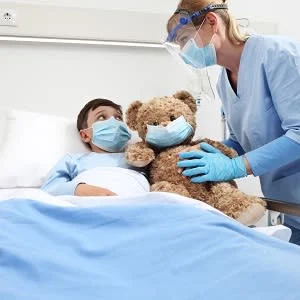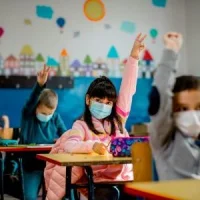Optimal patient experience is an integral part of effective healthcare. Therefore, the UK National Institute for Health and Care Excellence (NICE) published ten years ago healthcare experience guidelines for adults who access UK’s National Health Service (NHS) and commissioned health services. Unfortunately, children require different considerations from adults and therefore need specialised procedures. With this in mind, NICE recently published new guidelines (NG204) to optimise the healthcare experience of babies, children, and adolescents (aged up to 18 years). These provide evidence-based information on communication, information, support, the healthcare environment, access, and continuity of care for healthcare professionals, children, young people, parents, and caregivers.
It advises maintaining the usual activities since babies, children, and young people need to grow, learn, and develop alongside their peers while receiving healthcare. It aims to ensure that babies, children, and young people using NHS services have the best possible healthcare experience. Although designed for the UK, these guidelines offer much to the rest of the world, given the absence of similar national guidelines. Some guidelines easily apply, such as encouraging children to ask for support, health workers to be truthful about painful procedures and alleviating pain. The guidance emphasises the need to involve children and adolescents in the decision-making process and provide them with clear and accurate information tailored to the patient’s maturity and comprehension level.
Dr Paul Chrisp, director of the NICE Centre for Guidelines, adds: “Younger patients have historically been seen as more ‘passive’ recipients of healthcare than adults, but supporting them to truly understand their condition and treatment can help them to feel more confident engaging with healthcare staff.”
However, some recommendations might be inappropriate outside the UK in low- and middle-income countries. For example, giving the children the authority to control caregiver involvement might alienate some caregivers and be seen as disrespectful. Other recommendations might not generalise given cost or infrastructure issues that other countries may face. Regardless, the guidelines recognise the need for cultural sensitivity and are a step forward given the previous lack of specific guidance.
References:
Ford, Tamsin et al. (2021) Optimising the health-care experiences of babies, children, and young people The Lancet, Volume 398;10307:1201-1203
NG204: Babies, children and young people's experience of healthcare NICE guideline. (2021) Available from www.nice.org.uk/guidance/ng204
Positive healthcare experience for babies, children and young people essential to their wellbeing. (2021) Available from www.nice.org.uk/news/article/positive-healthcare-experience-for-babies-children-and-young-people-essential-to-their-wellbeing







